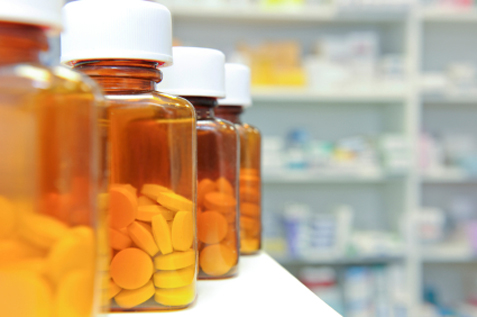
During the last decades it has been demonstrated by a number of studies that medicine morbidity and mortality is one of the major health problems which is beginning to be recognized by health professionals and the public. An adverse drug reaction (ADR) is an injury caused by taking medication. ADRs may occur following a single dose or prolonged administration of a drug or result from the combination of two or more drugs. The meaning of this expression differs from the meaning of "side effect", as this last expression might also imply that the effects can be beneficial. The information collected during the pre-marketing phase of drug development is inevitably incomplete with regard to possible ADRs. This is mainly because: Tests in animals are insufficient to predict human safety; Patients used in clinical trials are selected and limited in number, the conditions of use differ from those in clinical practice and the duration of trials is limited; By the time of licensing exposure of less than 5000 human subjects to a drug allows only the more common ADR to be detected; At least 30,000 people need to be treated with a drug to be sure that you do not miss at least one patient with an ADR which has an incidence of 1 in 10,000 exposed individuals; Information about rare but serious adverse reactions, chronic toxicity, use in special groups (such as children, the elderly or pregnant women) or drug interactions is often incomplete or not available Adverse drug reactions may cause patients to lose confidence in or have negative emotions toward their physicians and seek self-treatment options, which may consequently precipitate additional ADRs. The definition of an ADR is often confused with that of an adverse drug event (ADE). The World Health Organization (WHO) defines an ADE as “any untoward medical occurrence that may present during treatment with a pharmaceutical product but which does not necessarily have a causal relationship with this treatment” Adverse Drug Reaction Terms and Definitions Adverse Drug Reaction (ADR) • A response to a drug that is noxious and unintended and occurs at doses normally used in man for the prophylaxis, diagnosis, or therapy of disease or for modification of physiological function (WHO) • An appreciably harmful or unpleasant reaction, caused by an intervention related to the use of a medicinal product, which predicts hazard from future administration and warrants prevention or specific treatment, or alteration of the dosage regimen, or withdrawal of the product (Edwards) • Any unexpected, unintended, undesired, or excessive response to a drug that requires discontinuing the drug (therapeutic or diagnostic), requires changing the drug therapy, requires modifying the dose (except for minor dosage adjustments), necessitates admission to a hospital, prolongs stay in a health care facility, necessitates supportive treatment, significantly complicates diagnosis, negatively affects prognosis, or results in temporary or permanent harm, disability, or death (ASHP)c • Harm directly caused by a drug at normal doses (Edwards) Adverse Drug Event (ADE) • Any untoward occurrence that may present during treatment with a pharmaceutical product but that does not necessarily have a causal relation to the treatment (WHO) • Injuries caused by medical interventions related to a drug. Adverse drug events may result from medication errors or from ADRs in which there was no error (Bates) Unexpected Adverse Reaction • An adverse reaction, the nature or severity of which is not consistent with domestic labeling or market authorization, or expected from characteristics of the drug Serious Adverse Effect • Any untoward medical occurrence that at any dose results in death, requires hospital admission or prolongation of existing hospital stay, results in persistent or significant disability/incapacity, or is life threatening Signal • Reported information on a possible causal relation between an adverse event and a drug, the relation being previously unknown or incompletely documented Medication Error • Any preventable event that may cause or lead to inappropriate medication use or patient harm while the medication is in the control of the health care professional, patient, or consumer • Errors in the process of ordering or delivering a medication, regardless of whether an injury occurred or the potential for injury was present • Inappropriate use of a drug that may or may not result in harm References: https://en.wikipedia.org/wiki/Adverse_drug_reaction https://www.accp.com/docs/bookstore/psap/2015B2.SampleChapter https://apps.who.int/medicinedocs/en/d/Jh2992e/2.html By Babayeva N.
If this page is in your subscriptions, then it will be removed. You will not see this page. If you want to unblock a user, go to the settings, the list of blocked users and click unblock